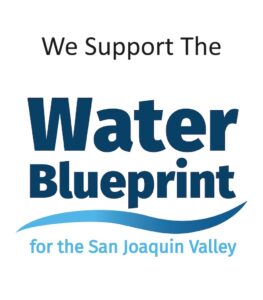By Don A. Wright
The State Water Resources Control Board met at the Cal EPA Building in Sacramento on Tuesday, April 16, 2024 and online. This is actually a two day meeting but the first day is focused on the Tulare Lake Subbasin probationary hearing. Board Chairman Joaquin Esquivel called the meeting to order at 9:00am. There is a draft resolution linked to the probationary hearing and the board will vote on whether or not to place the Tulare Lake Subbasin (TLS) into probationary status at the end of the meeting. TLS is located primarily in Kings County.
If the State Board finds the TLS’s Groundwater Sustainability Plan (GSP) inadequate there is a draft resolution to follow staff recommendations to place the subbasin in probation. Under the Sustainable Groundwater Management Act certain hydrologic subbasins have to prepare a GSP that shows how the subbasin will avoid six undesirable groundwater conditions in its aquifer by 2040. State Board staff maintains the TLS’ GSP isn’t complete. The GSAs in the subbasin say they have yet another revision to the GSP and are asking the Board to delay placing the TLS in probation, until they can submit the latest version. This hearing includes lots of public and staff comments, board questions and procedural process. The meeting lasted a little over nine-hours. (Whoops, 1st version stated 11-hours, journalist math.)
At the end of the day the State Board voted to send the Tulare Lake Subbasin into probation. If you want the full version and I mean the 13 page, 8,000 plus word long report go here. What follows is a condensed report.
The Probation Hearing
At 9:30am Esquivel began the hearing saying this is the first of its kind and the board won’t be taking things lightly. Whether or not the board decides to place the subbasin in probation it recognizes the tremendous amount of work the local GSAs have already completed.
Elected officials and tribes were invited to speak first. A spokesman for Assemblyman Devin Mathis said famine isn’t a far off threat if you don’t provide crops with water. Nobody knows the groundwater better than the local farmers. He urged the Board to consider the economic and food supply impacts when making its decision.
Kings County Supervisor Doug Verboon who summed it up, “Increase the flow of surface water to the San Joaquin Valley.”
Staff Report
Staff began its testimony with Natalie Stork, Engineer for the State Board who walked everyone through the probationary process. Stork said the board can adopt probation, delay the decision or return the TLS’s GSP back to the Department of Water Resources. Probation only lasts as long as it takes for Groundwater Sustainability Agencies to fix issues in the Groundwater Sustainability Plan. The goal is to return control to local GSAs. After one year if the GSAs can’t get a workable GSP together the State Board will take over and develop its own GSP.
Probation only lasts as long as it takes for Groundwater Sustainability Agencies to fix issues in the Groundwater Sustainability Plan. The goal is to return control to local GSAs. After one year if the GSAs can’t get a workable GSP together the State Board will take over and develop its own GSP.
Geologist Caroline Hackett told the board five GSAs manage groundwater in the TLS: Mid Kings, South Fork Kings, Southwest Kings, El Rico and Tri-County GSAs submitted the GSP on time in 2020. DWR had two years to evaluate it, found it incomplete. In July 2022 a revised GSA was resubmitted. In March 2023 DWR still found it inadequate. In October 2023 a draft staff report was released and a public workshop was held in November of that year. Staff recommended probation based on GSP deficiencies in dealing with groundwater levels, subsidence and groundwater quality.
Stork reported State Board staff has held seven meetings with the GSAs to discuss concerns. She said it’s unclear if the GSAs have incorporated the staff report into a revised GSP. She then reviewed staff recommendations.
Staff Recommendations
Stork said staff to recommends probation. She said the plan as drafted will not achieve sustainability by 2040. Staff didn’t find a “good actor” amongst the GSAs and all of the subbasin must be included. Two GSAs requested exemption but staff didn’t think the GSP warranted this. A good actor could be exempted from probationary measures.
Under probation wells that pump less than two acre feet per year are exempt and starting December 1st wells pumping more than two acre feet must start reporting. Record keeping starts in July. There will be a $300 per well and $20 per acre feet pumping fee imposed. This includes a 25 percent per month late fee. If a well pumps five acre feet or more it will have to have an approved meter installed.
starts in July. There will be a $300 per well and $20 per acre feet pumping fee imposed. This includes a 25 percent per month late fee. If a well pumps five acre feet or more it will have to have an approved meter installed.
Stork said if the Board adopts probation and the deficiencies are resolved within one year staff will recommend removing probation and if not staff will develop its own GSP.
Board Response
Director Dorene D’Adamo asked staff about residual and natural subsidence. Staff said it can provide modeling help to the GSAs.
D’Adamo asked about the reduction of fees. A staff member said under SGMA the State Board is required to collect fees to pay for its expenses. The per acre foot fee was reduced from $40 to $20. (I believe the idea of charging $40 as part of a $30 million plus immediate cost was not a good picture during an election year with a governor who has further political aspirations.) Staff said the goal is to charge as little as possible.
Even with the pumping fee reduced by half if the subbasin is placed in probation the immediate fine will be more than $20 million with a 25-percent per month late fee. Ouch.
D’Adamo said she wants to see local control as soon as possible should probation be implemented. She wants to avoid a doom loop where the locals continually resubmit a plan and have to rewrite it. Good for her. Stop the guessing game of how to write a plan that has never been required before.
TLS Response
A panel of representatives from the five GSAs in the subbasin spoke next. Geosyntec Engineer Amir Hussain said TLS is working on an updated GSP and is close to submitting it. The GSP now has a path to slow down subsidence by 2040 under SGMA. Hussain reminded the board there have been improvements to subsidence in certain areas of the subbasin. He said there are areas within the subbasin that have very little infrastructure and they are debating making these areas a special zone.
Hussain said there are only a few wells in the California Aqueduct area but pumping and drilling restrictions will be heavily weighed. Mitigation programs for levees, canals and municipal wells will be implemented. He reminded the board GSAs only control pumping not water quality degradation. As far as water quality can be maintained pumping will be considered.
South Fork Kings GSA
Hussain spoke for the South Fork Kings GSA as they are searching for a new General Manager and didn’t have a spokesman. South Fork has passed a 218 Election that will provide it with funds to operate. The state doesn’t pay for GSAs, the landowners within the GSA fund it.
Manager and didn’t have a spokesman. South Fork has passed a 218 Election that will provide it with funds to operate. The state doesn’t pay for GSAs, the landowners within the GSA fund it.
Mid-Kings River GSA
MKRGSA General Manager Dennis Mills spoke saying his GSA is uphill from Tulare Lake and has most of the population centers. Mills said there have been significant increases in the registration of wells and a pumping cap was approved last month.
Director Sean Maguire asked if these restrictions are being developed as, and included as policy in the GSP. Mills said yes.
Jared Hutchings, GM (this is his first week on the job) said subsidence is a very small part of the SWKGSA. A well registration and mitigation program is being developed.
Tri County Water Authority
General Manager Deanna Jackson said TCWA is a joint powers authority. She said metering, demand management and domestic well mitigation were adopted in 2020. The overall area is 117,000 acres.
Jackson told the board lumping all of the GSAs in TLS into the probation pot is wrong. She said TC has no subsidence, threatened domestic wells or other undesirable results pending after its portion of the GSP is implemented – something already underway. She said it isn’t the intent of SGMA to lump all GSAs’ behavior in harm.
El Rico GSA
Jeoff Wyrick, GM, said since 2020 there has been a metering policy in place and well registration is more than 90-percent complete. The pumping limit is two acre feet and decreasing every five years until 2040. There is a long term fallowing program – 60,000 acres during dry years. The subsidence plan includes protection of the levees surrounding Corcoran. There are no known domestic wells going dry and less than 20 domestic wells impacted due to flooding.
Wyrick concluded saying each TLS GSA is committed to actively managing groundwater conditions. He believes the new GSP will address the issues satisfactorily. He asked a dedicated staff member be assigned to the TLS as it currently takes six weeks to schedule a meeting. He asked the board to delay a decision until the updated GSP is presented.
Director Nicole Morgan asked about minimum thresholds. Hussain said the MTs were set so all the 4,000 or so wells are being updated. The mitigation is designed to prevent pushing a problem down to a deeper zone. Wyrick said El Rico GSA believes it can arrest subsidence by 2040.
Maguire said he’s looking forward to the completed plan and said it is very meaningful to have so much representation from the TLS at the meeting in person and online. He said he realizes TLS is the guinea pig. He reminded the GSAs the good actor request could come later.
Public Comment
Doug Freitas, is a small farmer in Kings County. He said he can see a path for adding small farmers to the ranks of the homeless. He asked Governor Gavin Newsom to remember that peoples’ lives are at stake. Freitas said when he was a boy working in the cotton fields he found a dead gopher. His dad told him, “See son, that gopher couldn’t make a living here either.”
remember that peoples’ lives are at stake. Freitas said when he was a boy working in the cotton fields he found a dead gopher. His dad told him, “See son, that gopher couldn’t make a living here either.”
He said the Water Blueprint for the San Joaquin Valley has commissioned an economic study of the implementation of SGMA without mitigation. The report prepared by UC Berkeley researchers show up to one million acres of farmland being fallowed. He said the most impacted will be the Hispanic community who depend on the agriculture driving the economic engine and they are the most vulnerable. The tax base will be massively harmed.
More Comment
After lunch, online there was a Native American whose name I didn’t catch from a tribe, Chumash perhaps, who urged the board to place the TLS on probation. He said farmers get their water for free and don’t pay taxes. He said farmers having to pay $20 for 1,000 acre feet and $30 per well isn’t enough. He said something to the effect that farmers have abused the earth and it is now crumbling under their feet. OK. This is the United States of America, there is free speech and we are all inaccurate now and then. Lord knows I am. But my sense is this particular bit of testimony didn’t move the needle much.
abused the earth and it is now crumbling under their feet. OK. This is the United States of America, there is free speech and we are all inaccurate now and then. Lord knows I am. But my sense is this particular bit of testimony didn’t move the needle much.
Julie Freitas spoke saying in Kings County 13.5 percent of the families live in poverty. Family farms make up 80 percent of the farms. The estimated amount of the Kings County population working directly in ag is 75 percent. Farmers are one of the most suicide plagued social subgroups – higher than veterans. Freitas asked the Board to delay a probationary discission.
Keith Freitas, no relation to the other Freitas’ spoke online saying this is an unprecedented meeting. He said the state is overly focused on subsidence and asked why the state is running High Speed Rail through a Valley that’s sinking. True.
On a side note: using journalist math I’ve estimated if the station in Merced was moved two and half miles south and the Bakersfield station moved two and half miles north – the saving from shortening the track by only five miles would pay to completely refurbish the major parts of the water conveyance system in California. That’s how much a train to nowhere will cost taxpayers in a state without a balanced legislature and a press actually willing to report independently.
Freitas said the unintended consequences of SGMA are just now being shown.
Cody Phillips from the Coast Keepers Alliance said he believes staff “equity” analyzed the GSP and urges probation. He said, with what sounded like glee in his voice.
Nataly Escobedo Garcia of the Leadership Counsel for Justice & Accountability also urged the board to follow staff recommendations and place the TLS on probation. By the way Garcia recently received her PhD from UC Irvin. Good for her.
Antonio Solario, Westlands WD GSA said to place the TLS on probation. His subbasin was uncomfortable the lack of action by TLS was harming their SGMA compliance.
Derreck Yurosek, chair of the Kern Subbasin Coordination Committee said they are concerned about the application of the good actor clause. He asked the State Board to provide clarification of how the good actor clause is implemented. It’s in SGMA and he said it’s not being applied here. He wants to know more about the differences between GSPs made by multiple GSAs.
Mac Glackin, Clean Water Action said placing the TLS in probation will be a step forward for equity and climate justice. She said until those most impacted by climate change have their concerns addressed and measurable improvements shown there must be probation.
Alex Biering, California Farm Bureau said the relationship between the GSAs, the State Board and those living in a subbasin should be cooperative, collaborative and with the goal of true sustainability. This first look at probation should be taken with care as it is a first of its kind. Esquivel said he recognizes the anxiety.
Lynn McBride, California Dairy Campaign said she believes the adoption of probation at this time is premature. The looming threats of land fallowing should be replaced with solutions that maintain the economic well-being of those living in the area.
Tom Pires, a farmer on the south fork of the Kings River said he’s sat through GSA meetings and he’s heard over and over – advocates for – getting more surface water to the area. He asked the board to put themselves in the place of those who live there.
Rachel Glauser, Delta View Water Association said there are irreversible consequences of placing the TLS in probation. She said most of the concerns have been about having enough time to adapt. She asked the Board to give the area more time to fix the plan and leave it to the folks who live there.
Blake Wilbur, farmer, Tulare ID board member and volunteer member of the Mid Kaweah GSA Stakeholder Committee. He said the farmers in the Tulare Lake Subbasin are in a tough position as are the farmers in the Kaweah Subbasin.. There are good actors out there. He urged the board to consider the action already undertaken when considering probation rulings.
Aaron Fukuda, GM Tulare ID said this is the 10-year anniversary of SGMA. He said what is being seen on the ground are impacts to water pricing and land values. He said making a decision on one side will impact the other. He said the metering issue in the draft staff report is difficult when they are already using the evapotranspiration model. He asked to consider ET as an option to metering.
Dusty Ference, GM Kings County Farm Bureau said probation of the TLS is a train wreck riding over the cliff. He said he wants the Board to provide Kings County Farm Bureau the justification for the fine rates arrived. He asked if the State Board has a plan to protect the local economy. He said staff doesn’t appear to want to do so. Ference asked the Board to provide the names of the staff and consultants who have developed a plan. He asked how can the plans developed by the locals always be wrong and the staff correct?
Soren Nelson, ACWA said this hearing is a microcosm of the SGMA process, long and somewhat uncomfortable. He said all the basins are now covered by GSAs and GSPs and that wasn’t expected when the law was written. Many of these GSAs are not well resourced and that should be taken seriously into consideration. He said it is evident the GSAs are working hard and fast to get in compliance.
Brian Maderas, Valley farmer who said farmers sweat and bleed everyday to grow food. He said when they don’t irrigate around his home they see problems with their domestic wells. Farmers use domestic wells also. Then he quoted one of my reports, good for him and thanks. He continued saying probation could put the local economy in shambles. He wants to pass his farm down to his son.
Thomas Marihart, Kings County grower and ag businessman asked how the actions involving reducing groundwater pumping doesn’t violate the constitution’s Fifth Amendment taking clause.
He said the country’s economy is in poor shape due to inflation and the regulatory overreach of probation will have a profound impact on banking, food supply and national matters. Probation will only put the small family farm out of business and the corporate farms who the environmentalists love to hate will be taking more and more of a share of the food production.
Tien Tran, Community Water Center said many NGOs submitted a comment to place the TLS in probation. The people most impacted by the decision aren’t here today because of the resources it takes to attend a hearing in Sacramento is beyond most NGO ability as they are home taking care of their families. She said outreach to disadvantaged communities has been very poor by the GSAs.
Forgive me if I’m wrong but CWC and other NGOs like it have received millions in taxpayer Prop One grants to do outreach. Check with the California auditor. Other people with families to care for, like farmers and merchants who depend on the farm economy weren’t able to attend either. But some of them did participate even though they didn’t have a nonprofit organization paid by public funds to conduct outreach. It’s an insult of soft racism to claim someone can’t attend a meeting. Like Esquivel, I didn’t comment on everyone’s testimony. But when an organization takes public money to do a job then blames others for not getting the job done – it merits comment.
Jasmine Ramirez, Self Help Enterprises said increased sampling of water quality should be conducted. She asked for seats for DACs and tribes be included on stakeholder committees. She said, “In closing, we value the state water board as a partner in SGMA implementation and drought mitigation efforts, and we are confident that moving forward, both the State Water Board and groundwater sustainability agencies will work diligently to fulfill their responsibility to guarantee the proper protection of drinking water.”
Johnny Gailey, Delta View said much of his points have been covered. He said he believes the plan is almost ready. He said if the Board could provide facilitations dedicated to TLS that would be tremendously helpful. Gailey said more than $9 million in annual pumping fees is expected to be fined on probation adoption. How much money does the Board need is a major question.
Garrett Gilcreast said his family has been farming in the Lemoore area for more than 100-years. What he didn’t hear today were the impacts on ag workers. He said conditions for ag workers have changed for the better and he doesn’t want to see the disadvantaged communities become more disadvantaged. He said an acceptable GSP is close and with or without probation, communication with the Board is ever more important.
Lauren Evangelo, Kings County dairywoman said she’s concerned about the food supply in the macro but also in the local area as paychecks are going to shrink. She said ag imports to California in 2020 were $10 billion, while at the same time exports were $13 billion. She said climate change will be made worse when you consider the farming practices elsewhere that would be replacing California’s safe and efficient growers. She said the best time to plant a tree is 20-years ago. The second best is now.
Steve Jackson, farmer and former Tri County board member said there has been a great movement in stakeholder involvement, especially on the south fork. People have to interact. He said he senses the Board wants local control. There have been issues with DACs due to a lack of water supplies. Demand management isn’t the silver bullet. Subsidence’s impacts spread far beyond just TLS.
Board Response
D’Adamo said she likes the idea of having dedicated staff for the TLS. She also saw a need for additional flexibility between ET and meters. Esquivel echoed the need for a dedicated staff member.
Morgan said the goal is local control as quickly as possible and wants an efficient use of time. She is open to taking advantage of new technology.
Director Laurel Firestone said putting together a sustainable plan is difficult. She said not just farmers’ profits but families as well – the entire community will be impacted at this turning point. She said this is it – reducing pumping will have impacts but so will doing nothing. She said this is the new climate and there is no choice, it is time for the state to step in. She said probation is the first step.
She said she does think there needs to be probation. She wants to focus on supplies and not just demand reduction. Although she said earlier if the subbasin can’t get out of probation and staff takes over there will be a great deal of demand reduction – severely reduced pumping allocations.
Maguire asked how do the GSAs stay the face of SGMA instead of the State Board, was one of his questions.
Staff Response
James Nachbaur said having a dedicated staff would be a good improvement. Stork said she had slides on ET. The new State Board Executive Director Eric Oppenheimer said he didn’t believe slides are necessary. If the board is interested in allowing ET that can be included in the probationary plan. Firestone was against using ET. She kept referring to Open ET which has not been as widely accepted as Land IQ’s satellite ET system. Land IQ is already widely in use.
D’Adamo and Morgan said having an ET option is good for some small growers. Firestone said she thinks this will be confusing but she’s up for finding the best way to signal the Board is open to good water management. She just doesn’t want the perception the Board will do this for all subbasins that go into probation.
Amanda Pearson said sustainable yields means there are no undesirable results. There is nothing in the current GSP that shows this in any of the GSAs. That means staff doesn’t see any good actor awards this Oscar season.
The Vote
Esquivel called for a vote. D’Adamo said there were many requests for a delay at today’s hearing. But the Board did not receive any documentation from the GSAs that stated that. She said she wouldn’t be comfortable with a delay absent that request fleshed out with a written request explaining why. She added she has hope because she sees improvements. She said the legislature has much more work to do with securing surface supplies.
Then the Board voted unanimously for probation at 6:35pm. And that was that.
DISCLAIMER OF RESPONSIBILITY; Waterwrights.net strives to provide its clients with the most complete, up-to-date, and accurate information available. Nevertheless, Waterwrights.net does not serve as a guarantor of the accuracy or completeness of the information provided, and specifically disclaims any and all responsibility for information that is not accurate, up-to-date, or complete. Waterwrights.net’s clients therefore rely on the accuracy, completeness and timeliness of information from Waterwrights.net entirely at their own risk. The opinions expressed in this report are those of the author and do not represent any advertisers or third parties.
ALL RIGHTS RESERVED. Copyright 2024 by WaterWrights.net


































